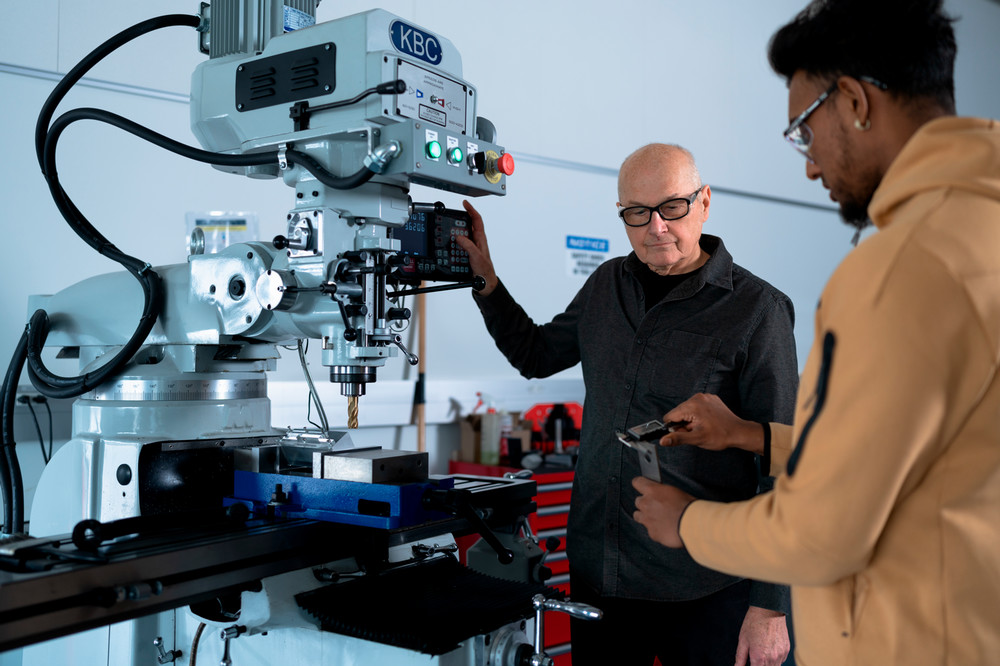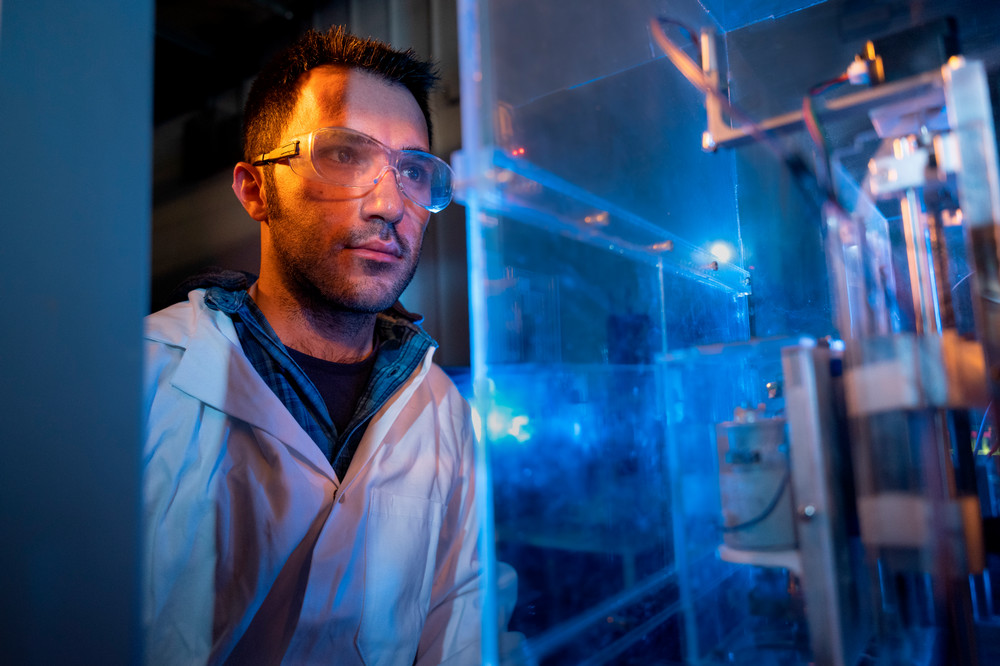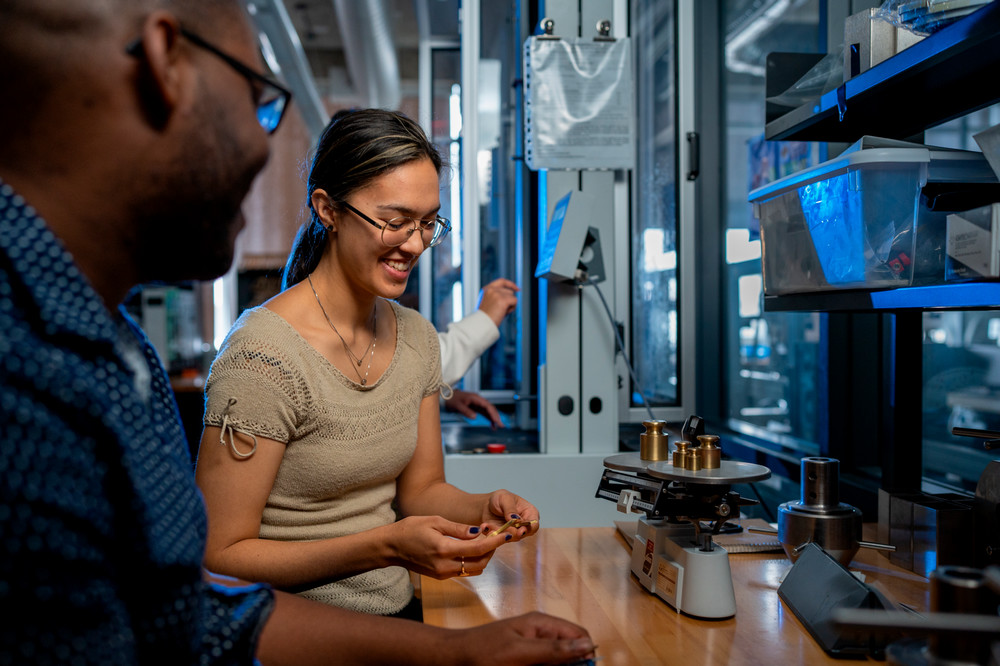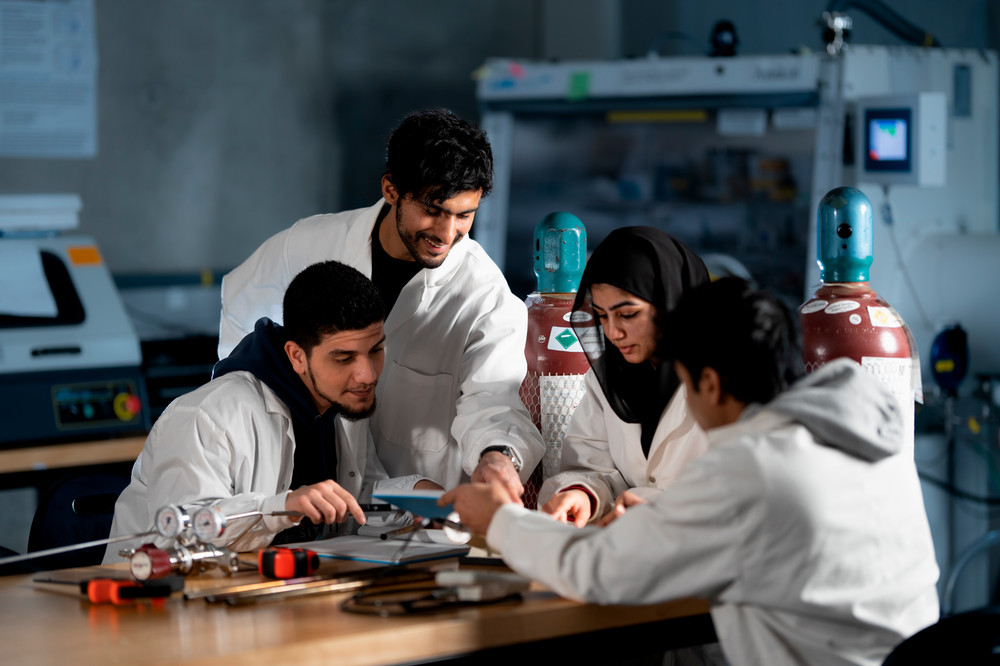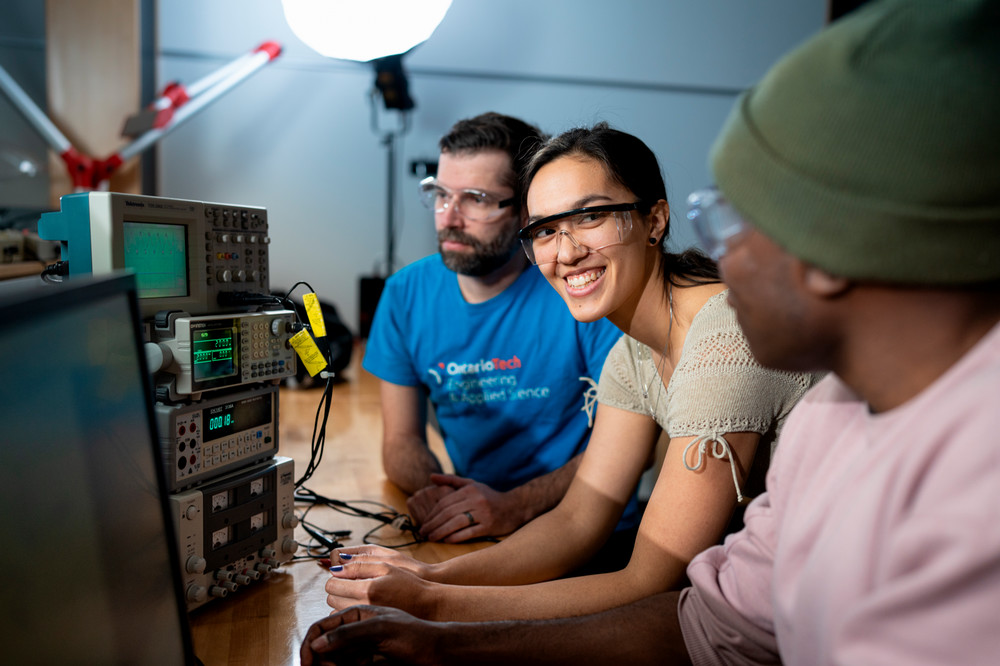Artificial Intelligence
Overview
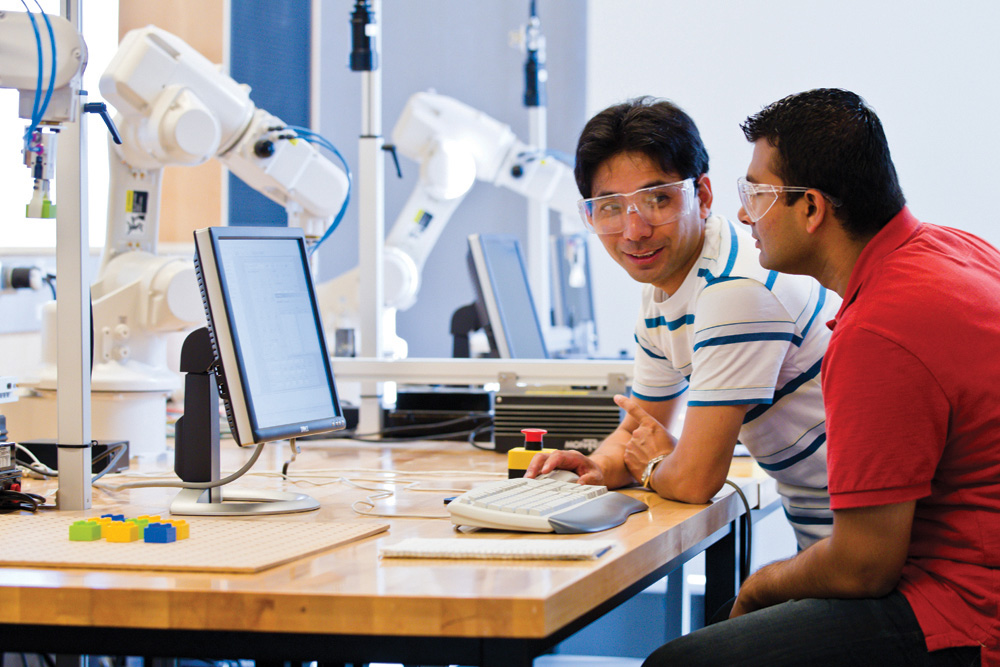 The Artificial Intelligence specialization gives you a solid foundation on the main aspects of Machine Learning and Artificial Intelligence, including Deep Learning, and the tools to solve modern engineering problems and challenges.
The Artificial Intelligence specialization gives you a solid foundation on the main aspects of Machine Learning and Artificial Intelligence, including Deep Learning, and the tools to solve modern engineering problems and challenges.
With a specialization in Artificial Intelligence you will learn the ethical implications of the use of Artificial Intelligence in engineering and society, including issues related to bias, privacy and the impact of AI on employment and decision-making. Through experiential learning opportunities, students will gain experience in designing, implementing and deploying AI models using industry-standard tools and frameworks. This program equips graduates with the skills needed to innovate and lead in the rapidly evolving field of AI, preparing them for a variety of roles in academia, industry and research.
The Artificial Intelligence specialization can be taken in the Mechanical Engineering and Mechatronics Engineering programs.
Foundation year
All engineering students begin with a common foundation year, regardless of the program of study. During the foundation year, you will learn about the various engineering programs available.
Engineering and Management
There is a need for engineers with management skills. Complement the technical studies of your engineering program with business and management courses by pursuing the five-year Bachelor of Engineering and Management (Honours) program.
Women in Engineering
A multi-year support program to help female engineering students explore opportunities and careers, gain experience in the workforce, make a successful transition to a career in engineering and find lifelong success in a professional engineering career. View more information about our Women in Engineering program.
Learning environment
Students have access to new, modern buildings, libraries and innovative labs, including:
- ACE Facilities
- Energy Systems and Nuclear Science Research Centre (ERC)
- Jeffery Boyce Engineering Innovation and Design Studio
- Ontario Power Generation (OPG) Engineering Building
- Software and Informatics Research Center (SIRC)
Admissions
Admissions
Current Ontario secondary school students must complete the Ontario Secondary School Diploma (OSSD) with six 4U or 4M credits including English (ENG4U) with a minimum grade of 60 per cent, Advanced Functions (MHF4U), Calculus and Vectors (MCV4U), Chemistry (SCH4U) and Physics (SPH4U). In addition, a combined minimum 70 per cent average in prerequisite math and science courses is required, with no grade below 60 per cent.
Note: Admission is competitive. The specific average or standing required for admission varies from year to year. Students are selected by taking into consideration a wide range of criteria including school marks, distribution of subjects taken and performance in subjects relevant to the academic program. Possession of the minimum requirements does not guarantee acceptance. Preference will be given to applicants with the best qualifications.
| Last year's cut-off | N/A |
|---|---|
| Expected cut-off | Mid-70s |
The application process and important dates/deadlines are outlined on our admissions website:
• Ontario secondary school applicants
• Ontario secondary school graduates
• Canadian out-of-province high school applicants
• International applicants
• Mature applicants (over 21 and never attended post-secondary)
• Transfer applicants
• General Arts and Science (GAS) applicants
• Home-schooled applicants
Career opportunities
- AI Ethics Specialist
- AI Research Scientist
- Data Scientist
- Machine Learning Engineer
- Natural Language Processing Engineer
- Robotics Engineer
- Software Engineer
Experiential learning
The Faculty of Engineering and Applied Science offers optional engineering internship and co-op work terms to provide students with the opportunity of gaining meaningful engineering experience and exploring possible careers.
-
Sample courses
A full program map is available in the Undergraduate Academic Calendar. Courses are subject to change without notice.


